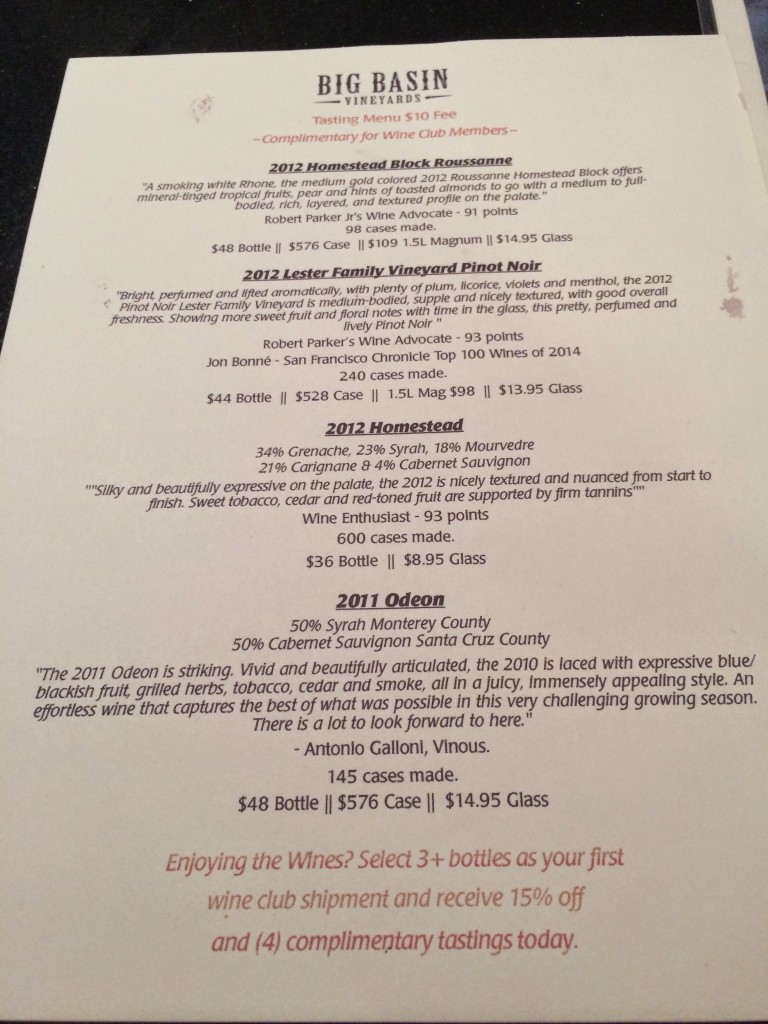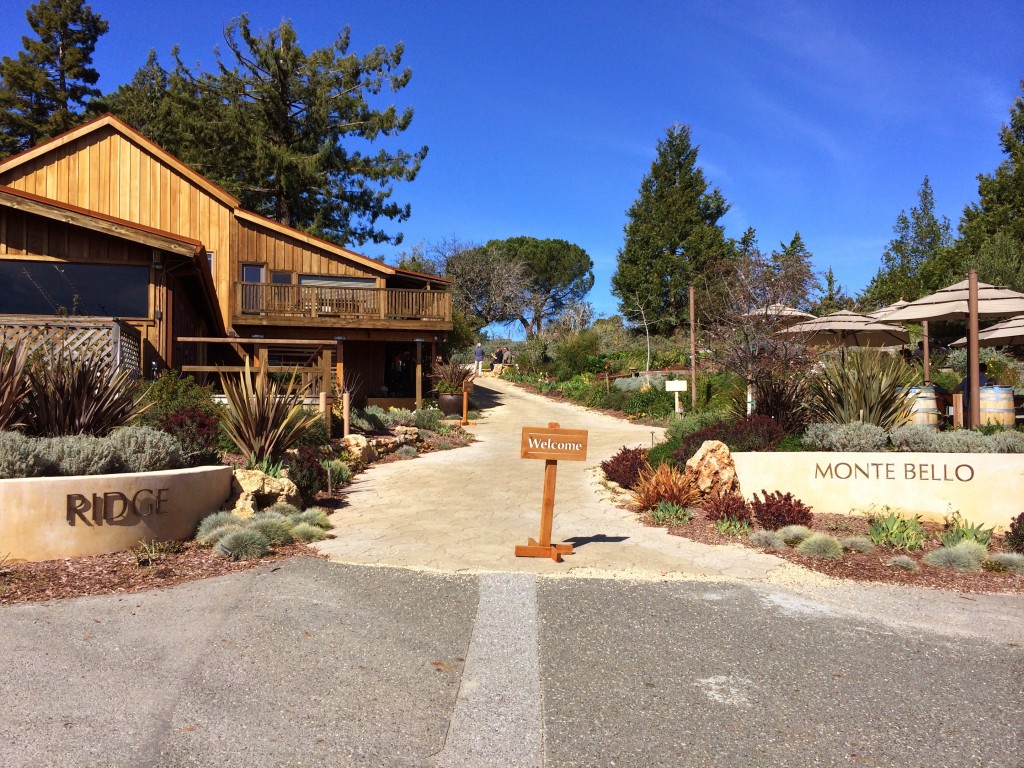Wine Tasting: Do I need to leave the SF Penninsula?
Advice on how to get the most out of your travels!
As shown in the table below, most wine tasting locations in Sonoma or Napa require an hour and a half or longer in driving time, compared with Saratoga which can be reached in an hour or less.
| Destination | Distance (miles) | Average Driving Times |
|---|---|---|
| Sonoma County | ||
| Sonoma | 44 | 1hr 10 min |
| Healdsburg | 70 | 1 hr 25 |
| Russian River |
75 | 1 hr 35 |
| Napa County | ||
| Carneros | 47 | 1hr 10 min |
| Rutherford | 65 | 1 hr 30 |
| Calistoga | 75 | 1 hr 40 |
| Penninsula | ||
| Saratoga | 50 | 1 hr |
| Santa Cruz Mountains | 50 | 1 hr 15 |
Please note that these drive times do not assume bridge traffic. To get to Napa or Sonoma you must either cross the Golden Gate or the Bay Bridge. Both can back up on the weekends, especially when the weather is nice! Traffic on the Peninsula, on the other hand, is generally light on weekends.
This post will highlight the following wine tasting locations:
Santa Cruz Mountains
Saratoga
Santa Cruz Mountains
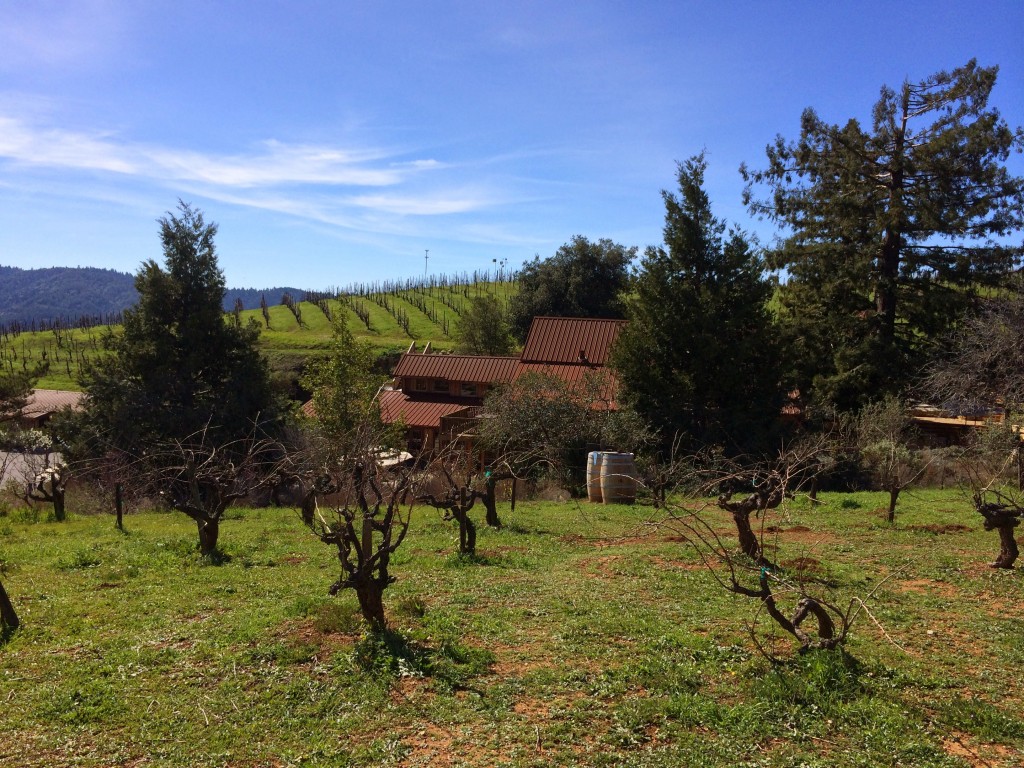
In the U.S., the term American Viticultural Areas (AVA) is used to identify each wine growing region, the boundaries of which are determined by the Federal government. AVAs are identified based on distinct growing conditions such as soil, climate and elevation. You may also see the term appellation used to describe wine regions, this term was used prior to the establishment of AVAs and is typically based on state or county boundaries.
The Santa Cruz AVA is a sometimes overlooked wine producing region, given its location, sandwiched between well know regions to the north (Napa and Sonoma) and south (Santa Ynez, Paso Robles). In fact, the history of this wine growing region dates back over 100 years! The Santa Cruz AVA is characterized by diverse microclimates, driven by mountain terrain, fog and proximity to the ocean. The variety of climates support a variety of grapes.
The warmer, inland, eastern side of the mountains is ideal for growing Zinfandel, Cabernet and Merlot. Cooler locations along the coast and ridgetops, on the other hand, are well suited for Pinot Noir and other cooler climate wines. Overall, over 60 wineries operate in this region; production is dominated by Pinot Noir, Cabernet Sauvignon, Chardonney and to a lesser extent, Zinfandel and Merlot. In terms of taste, the high mineral content of soil in the region provides a fresh mineral content to the wines of this region.
For a classic Santa Cruz Mountain Winery experience, drive up the mountain to the Ridge Vineyards’ Monte Bello location.
Ridge Vineyards (Monte Bello)
17100 Monte Bello Road Cupertino, CA 95014 Phone 408.867.3233
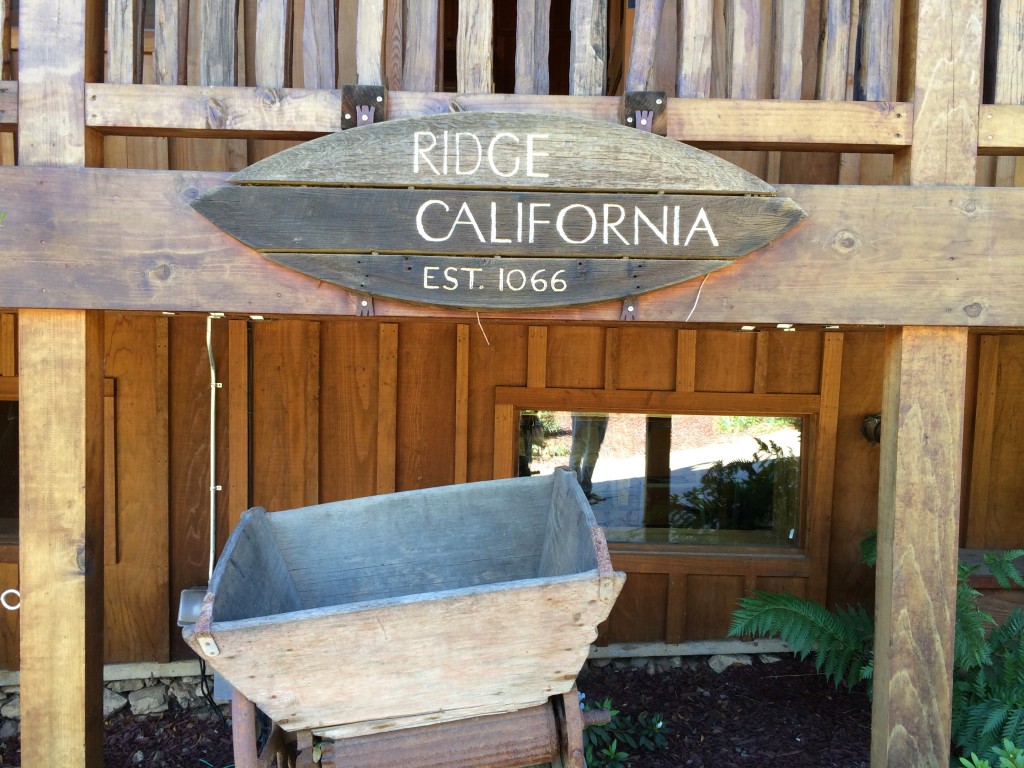
Ridge Vineyards is a legend in the wine industry, with the first vintage produced from the Monte Bello Winery (high atop the mountain) in 1892. Since then, the label has expanded both down the mountain side and to the Dry Creek Valley in Sonoma (Lytton Springs).
One of Ridge’s greatest claims to fame is the Monte Bello Estate Cabernet ($165). Originally imagined in the 1960’s by several Stanford Research Institute engineers, this high quality wine can be aged for over 20 years. The wine helped put both the vineyard and California on the map when it came in 5th place at the famous “Judgement of Paris” blind taste test in 1976. At the 30th anniversary of the competition, in 2006, the Monte Bello took first place among the same selection of French and California wines.
Before even tasting the wines at Ridge’s Monte Bello location in the hills above Cupertino, CA, you will be blown away by the beautiful location atop the Santa Cruz Mountains! Views extend well across the Silicon Valley. The winery offers ample picnic tables so a great option is to bring your lunch and enjoy your food and wine in this special setting. Given the curvey, single-lane drive up the mountain, the best strategy is to hit this winery first, as close to the 11am opening time as possible.
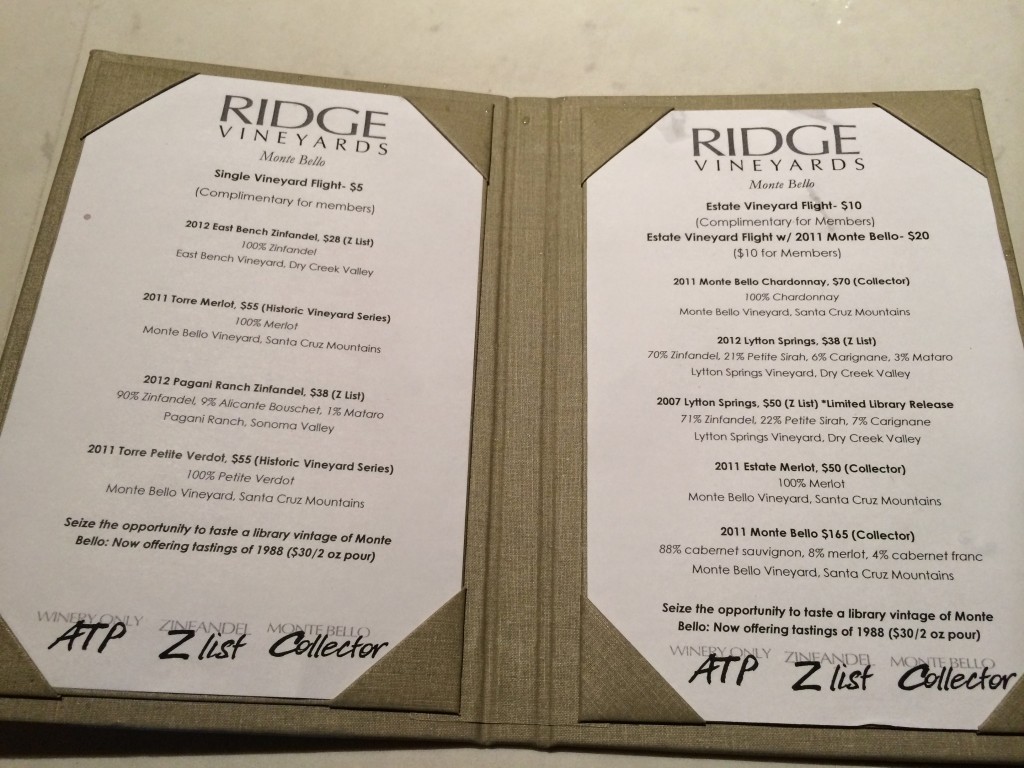
The tasting room offers two tasting options,the single vineyard menu ($5) or a selection of wines across all of Ridge’s vineyards ($10). As an add-on, you also have the option of tasting the current vintage of the Monte Bello ($10) or in some instances, an aged vintage from the library ($30). I recommend getting both tasting menus and sharing among two people. That way you will be able to do some fun side by side vintage comparisons. It also gives you a full picture of the winery’s portfolio.
Note that the tasting room is only open on the weekends! For weekday tastings you must make a reservation for a more formal experience including a walking tour of the vineyard and a seated tasting. Also, due to local regulations, wine tasting fees cannot be waived with purchase.
Saratoga
Looking for a quick way to taste several different Peninsula wine producers? Downtown Saratoga may be a perfect option! Within just a few blocks, visitors can taste their way through multiple wineries including: Cinnabar Winery, Cooper-Garrod Estate Vinyards, The Mountain Winery, Big Basin Vineyards, M4: Michael Martella and Michaud Vineyards and Savannah-Chanelle Vineyards.
One tasting room in particular is definitely worth a stop:
Big Basin Winery
14598 Big Basin Way, Suite B Saratoga, CA 95070 Phone 408.564.7346
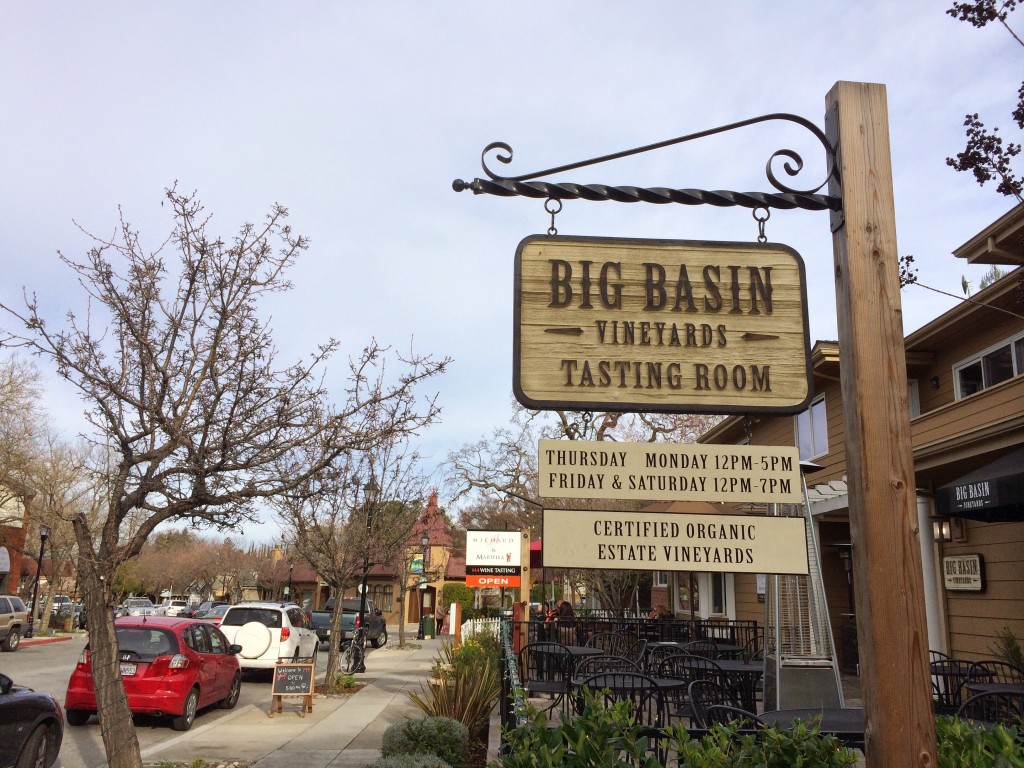
The Big Basin tasting room is located in downtown Saratoga and requires no reservations. Although the tasting room is in Saratoga, the vineyard, founded in 1998 is located in the Santa Cruz mountains, next to Big Basin Redwoods State Park. The CCOF Certified Organic winery takes advantage of its cool climate, ocean-influenced, mountain vineyards to produce a wide variety of reds including Syrah and Pinot Noir alongside a few whites including Chardonnay.
The small production winery is gaining big recognition for its Pinot Noir and Syrahs. The 2012 Lester Family Vineyard Pinot Noir was named as a top 100 wine of 2014 by San Francisco Chronicle’s wine editor, Jon Bonne. In addition, the March 2015 issue of Wine Enthusiast featured the 2011 Rattlesnake Rock and Old Corral Syrah in an article titled “California’s Best Syrahs“. See below for a sample $10 tasting menu.
